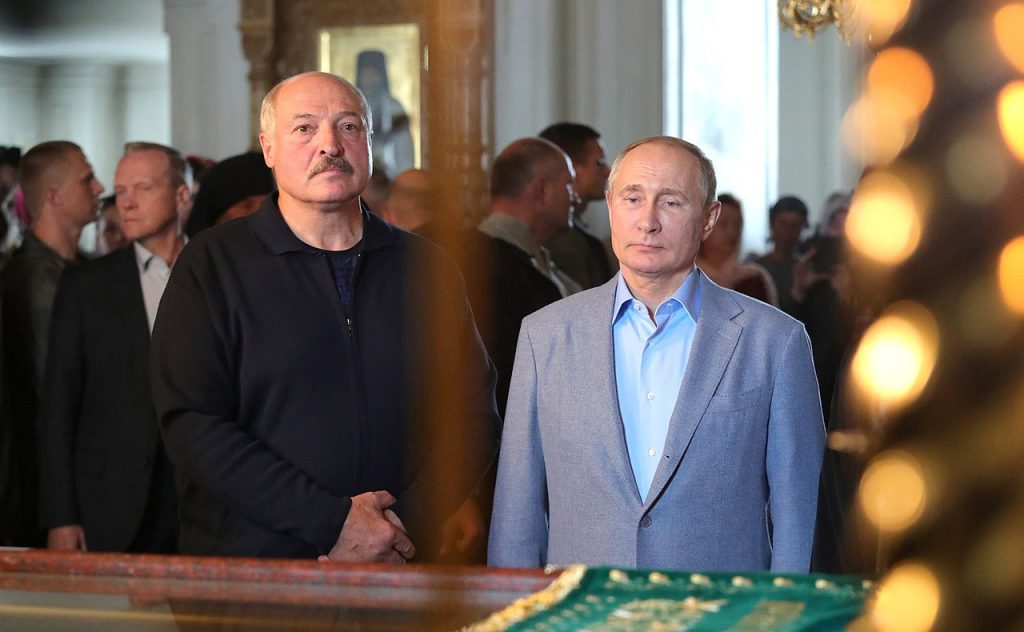
Image by Kremlin.ru
Russia and Belarus are allies mostly in theory. In reality, even before the coronavirus pandemic the two countries started distancing from each other, and now Belarus is almost used to not purchasing Russian oil.
Major Russian oil companies stopped shipping oil to Belarus on 1 January due to the absence of an agreement on price. However, they resumed oil deliveries to Belarus in April after Moscow reportedly agreed on Minsk’s conditions. In the meantime, Belarus managed to diversify its crude import. This year the East European country bought Saudi, Norwegian and Azerbaijani oil. According to Belarusian news agency BelTA, First Deputy Prime Minister Dmitry Krutoi said that alternative oil deliveries will always be on the Belarusian oil agenda.
“We will continue working with all the countries we have already bought oil from and with our new partners such as Saudi Arabia and the United States. No doubt, we will try to secure the most profitable terms of these deliveries,” Dmitry Krutoi said.
The oil issue is just one of numerous disputes that Russia and Belarus have. Recently Belarusian authorities stripped two Russian journalists of accreditation after their coverage of the growing coronavirus outbreak in the country. In response to Russia’s Channel One’s report, Belarusian state television channel aired a piece accusing Russian journalists of spreading false information.
Russian, as well as many Western mainstream media outlets, often ridiculed Belarusian President Alexander Lukashenko for opposing the official COVID-19 narrative. They tried to portray him as a “clown who does not care about his own people” after he refused to shut down the country’s economy and lockdown the population.
“The strategy that we have been following nearly three months is bearing fruit. Look at Western countries: they have started reopening cautiously, and their economies have restarted. Look at the East – the friendly, fraternal Russia has reopened the construction industry, manufacturing enterprises and other key economic sectors”, said Lukashenko, according to BelTA News Agency.
Even though Lukashenko managed to save much of Belarusian economy, the country still suffers from the coronavirus crisis. According to the official statistics, in the first three months of 2020, Belarus’ exports of goods and services reduced to $8.67B, which is 11.3 percent down comparing to the same period of 2019. The country’s imports decreased by 12.1 percent to $8.17 billion, and inflation in Belarus amounted to 3.3 percent in the January-April period.
At this point, the economic situation does not seem so bad, but given the fact that Russia, thecountry’s major trade partner was heavily hit by the economic crisis, the Belarusian export-oriented economy is expected to shrink. However, since Belarus, unlike most of other former Soviet and socialist countries, did not destroy its industrial base, and has managed to preserve much of its sovereignty, it will likely be able to relatively soon recover from the economic crisis.
Belarus has demonstrated on several occasions the importance of sovereignty. For instance, even though the World Health Organization urged Belarusian authorities to adopt stricter social distancing measures and cancel all public events, Minsk recently organized a military parade commemorating the 75th anniversary of the victory in World War II. Unlike Belarus, Russia canceled the event, even though the May 9 has a very symbolic importance for Russian people, as the Soviet Union played probably the most important role in defeating Nazi Germany.
Finally, President Lukashenko, unlike his Russian counterpart Vladmir Putin, did not self-isolate, but was very active during the global “war against the invisible enemy”. Even though measures he recommend against COVID-19 – such as vodka, sauna and work in a field – are quite controversial, his almost everyday appearance among people, amid global fear of the coronavirus, is showing that he genuinely believes that it is “better to die standing than to live on your knees”.
- A Traitor For Hezbollah From Minnesota And A Not-to-be-Forgotten Espionage ‘Honeytrap” Scheme
- Kow Tow : The EU’s approach To China

